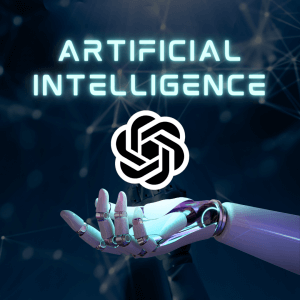Generative Artificial Intelligence (AI) has emerged as a significant technological advancement in recent years, and its impact is being felt across several industries, including higher education. As a community college, it’s essential to understand the implications of Generative AI on education and how it can impact your teaching and your students.
Generative AI is a branch of artificial intelligence that focuses on creating models that can generate new data. These models are trained using large datasets, and they can learn to produce new content that is similar to the data they have been trained on. In other words, generative AI can produce new content, such as text, images, and even music, that is indistinguishable from the real thing.
The implications of Generative AI on higher education are significant. Here are a few ways in which generative AI can impact education:
- Personalized Learning
Generative AI can enable personalized learning, where students can receive tailored content and feedback based on their learning style, interests, and abilities. With generative AI, instructors can create individualized lesson plans that cater to each student’s unique needs and learning pace. This can lead to better student engagement and improved academic outcomes.
- Enhanced Course Materials
Generative AI can be used to create course materials, such as textbooks, videos, and other multimedia content. With the help of AI, instructors can create high-quality and engaging materials that are customized to meet the specific needs of their students. This can lead to more effective learning and a better student experience.
- Improved Assessment
Generative AI can be used to assess student learning more accurately and effectively. AI-powered assessment tools can analyze large amounts of data and provide immediate feedback to students, enabling them to track their progress and identify areas that need improvement. This can help instructors to better understand their student’s needs and provide more targeted support.
- Streamlined Administrative Tasks
Generative AI can also be used to streamline administrative tasks, such as grading and scheduling. AI-powered grading tools can analyze student assignments and provide feedback and scores automatically, reducing the amount of time and effort required by instructors. Similarly, AI-powered scheduling tools can help instructors to manage their course schedules and organize their workload more efficiently.
- Ethical Considerations
While the potential benefits of generative AI in higher education are significant, it’s essential to consider the ethical implications of using AI in the classroom. Instructors should be aware of issues such as data privacy, bias, and the impact of AI on employment in the education sector.
In conclusion, Generative AI has the potential to revolutionize higher education. However, it’s crucial to consider the ethical implications of using AI in the classroom and to ensure that it is used responsibly and ethically. It’s essential to stay informed about the latest developments in AI and explore ways in which AI can be used to benefit your students and enhance their learning experience.
If you made it this far kudos for turning off your TL:DR* brain function at the end of the semester. How did the implications make you feel about Generative AI? What are some ways you could use it as an instructor? What are some ethical considerations that you can discuss with your students?
What grade would you give the blog post? (Up until the above paragraph)
ChatGPT4 wrote it. It didn’t like the first version so I had it do a revision.
How are you feeling about Generative AI? Are we in a crisis or does it have more benefits than drawbacks? Over the summer, the Ed Tech team and Library team will be putting together resources for instructors to inform teaching practices and to share with students. In the meantime, play with ChatGPT or Bard (currently in Beta) and form your own opinion.
*TL:DR = Too long, didn’t read.



I found the material below the line to be confusing and stressful.